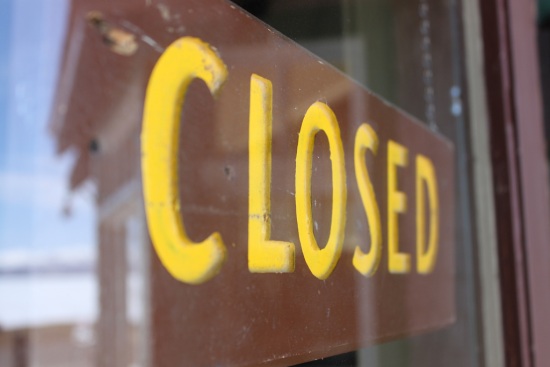The double dip recession has taken its toll on all sectors of industry in the UK. However, while there are signs of recovery, especially in the automotive industry, it appears that the retail sector is by no means out of the woods yet.

Although the drop in the inflation rate last month, from 2.5 per cent to 2.2 per cent, has encouraged shoppers to hit the high street once more, the long period of economic difficulty is beginning to take its toll on larger chain stores. In fact, shock figures released this week reveal that, in the first half of 2012, 953 stores owned by chain brands closed.
On average, this works out at more than 30 per day.
In a recession, retail chains expect to lose stores from their commercial property portfolio, as a drop in consumer spending makes certain locations unprofitable. Yet the worry is that 2012 saw an unprecedented spike in closures, as only 174 chain stores closed in the whole of 2011.
The research, conducted by accountancy firm PwC in conjunction with the Local Data Company, also revealed average store closures on a monthly basis. In the first six months, an average of 20 stores per day closed but this rose worryingly to 32 per day in July and August. This is particularly concerning given that the UK is now officially, in retail terms, in the run up to Christmas, meaning that chain brands cannot fully expect to cash in the amounts usually taken in this period.
Computer games stores, clothes shops, jewellers and toy shops were amongst the hardest hit, with more store closures than in areas such as food and drink, home furnishings and DIY.
One potential reason for the rocketing closure rate could be put down to several high profile chains going into administration earlier this year, especially in the clothing and computer games sectors. The collapse of brands such as the GAME Group, Peacocks, Aquascutum and, more recently, JJB Sports, has meant that there have been many closures on the high street in recent months.
Furthermore, as the recession began to chip away at chain brand’s savings, many found that it was no longer financially viable to continue injecting cash into poorly performing stores. As a result, even chains which are managing to coast through the recession relatively unscathed have become wary of putting too much time and money into unprofitable premises, choosing to cut their losses and close stores instead.
Yet the recession, whilst disastrous for many brands, has allowed for the rise in bookmakers, coffee shops, discount stores and pay day lenders. In many cases, empty premises on the high streets of Britain have been taken over by one of these types of business, as consumers attempt to save money and turn from more expensive brands.
Director of the Local Data Company, Matthew Hopkinson, has warned that the closures of so many high street staples could have a dire effect upon high streets nationwide.
He said; “The departure of so many larger stores is a major issue for many town centres, especially in secondary centres where they have for so many years been their high street’s anchors.
“A similar slowing in growth of the independents combined with this multiples drawdown has significant consequences beyond just driving vacancy rates up for many of these town centres.”
Do you think that consumers would be put off visiting their local town centre if there were a lower number of large, well known chain stores? Would you choose to visit independent stores in the town centre for items such as clothing and toys if the popular brands in your area shut down or would you turn to other means, such as visiting an out of town retail centre or shopping online? Tell us your views on this latest blow to high street retailing using the comments section below.
Wonderful site. Lots of helpful info here.
Glad you like our site Jalisa. Pop back regularly as we produce 4 articles per day 🙂